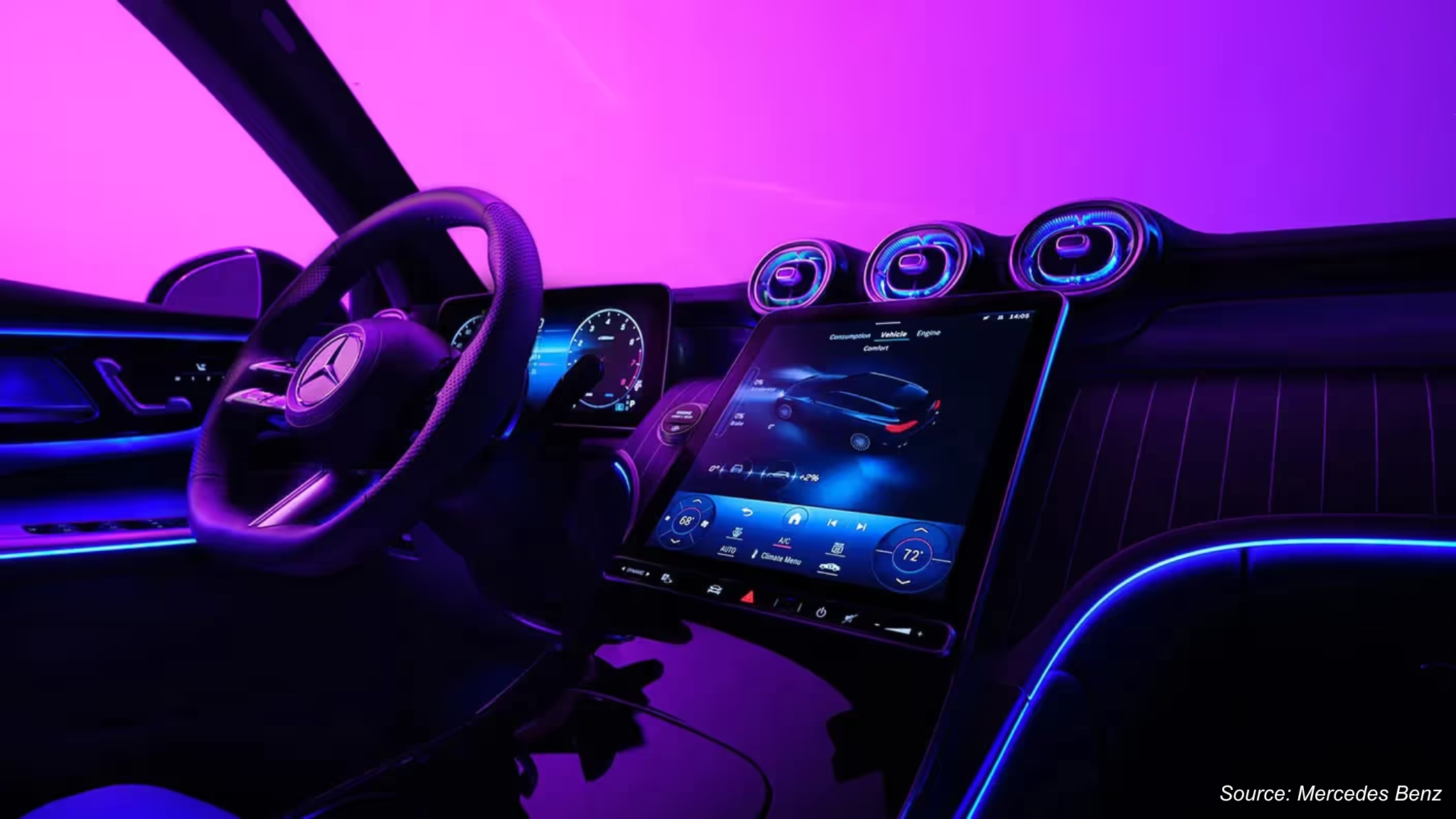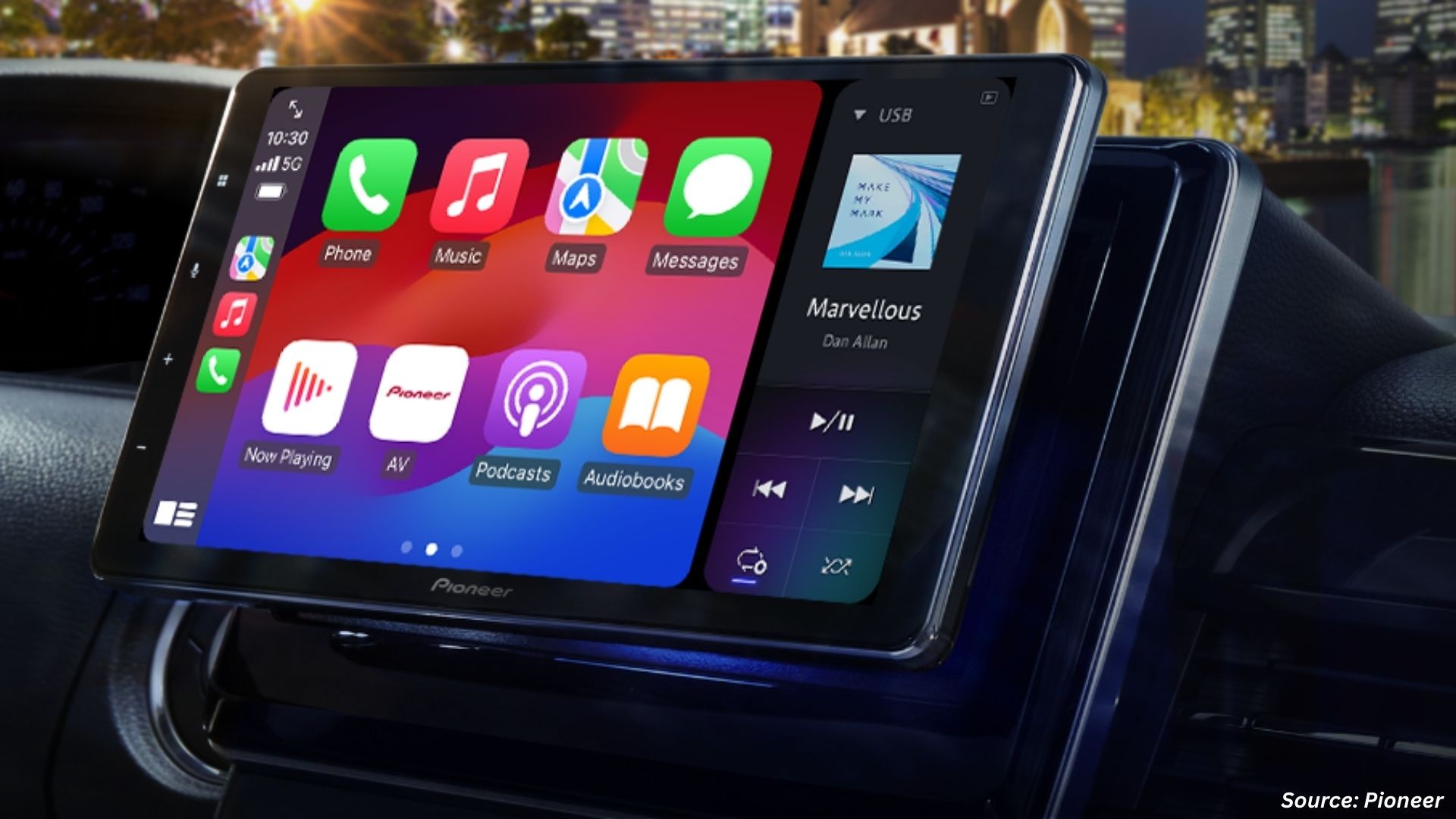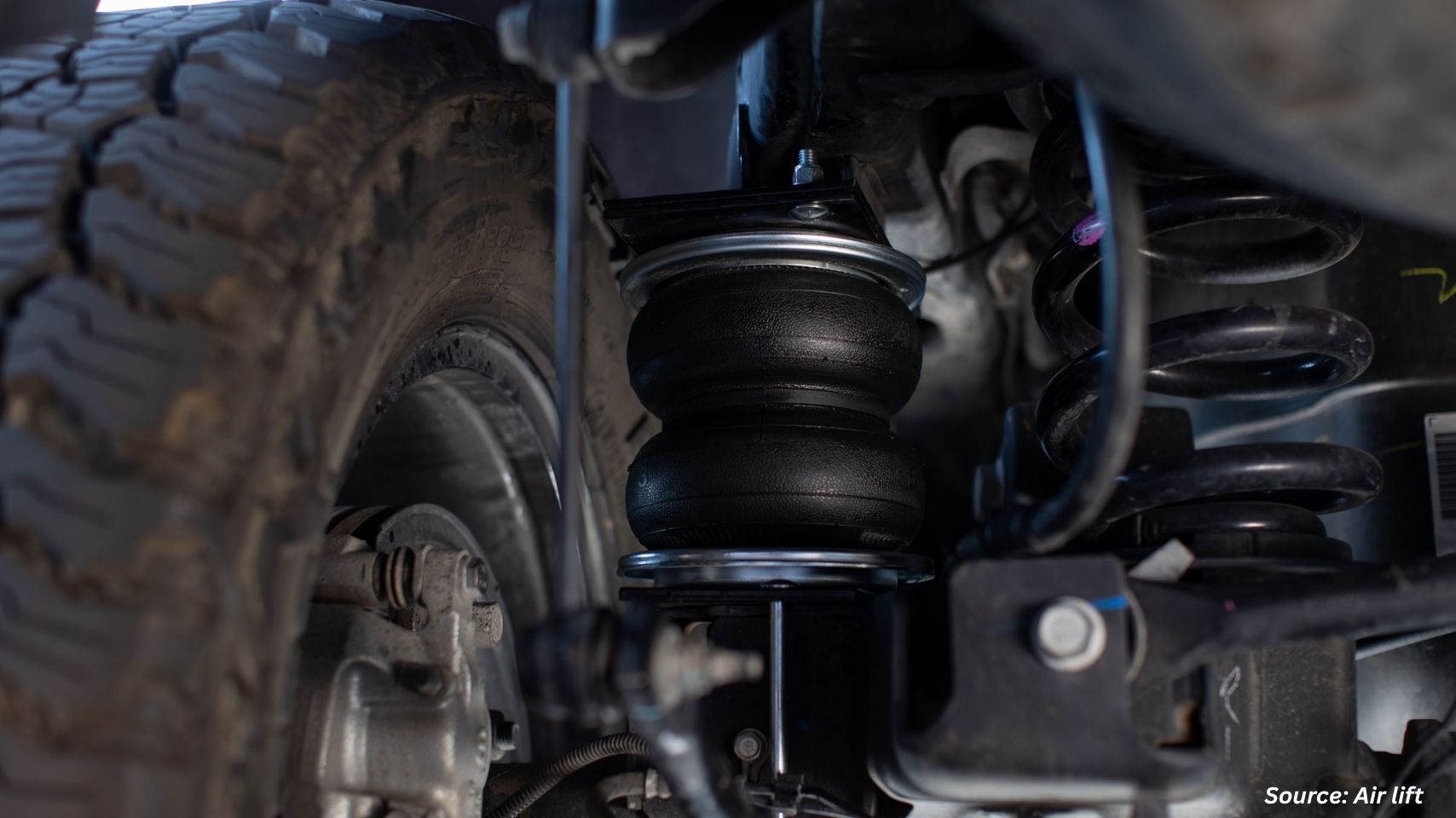How Technology is Shaping Modern Car Interiors
Published: 2025-09-15

Introduction
In today's rapidly evolving automotive landscape, the interior of vehicles is undergoing a profound transformation. Technological advancements drive this transformation. What was once a simple dashboard displaying basic vehicle information has now evolved into a sophisticated cockpit equipped with digital displays, connected features, and advanced driver-assistance systems. This blog explores the evolution of car interiors, the primary role of technology in shaping their design and functionality, key innovations propelling this change, and the future trends that promise to redefine the driving experience.
The Evolution of Car Interiors
-
Rise of Infotainment Systems:
The infotainment systems revolutionized car interiors by introducing touchscreen displays, navigation systems, and entertainment features. This shift toward a more interactive and user-friendly interface has enhanced the driving experience with increased connectivity and entertainment options. Panasonic Automotive's recent update to its SkipGen in-vehicle infotainment system is a testament to this advancement. The update introduces wake-word access to Siri and Alexa, allowing drivers to interact seamlessly with these virtual assistants using voice commands. This innovation enables drivers to perform hands-free tasks, such as making calls, sending messages, or accessing navigation. This, in turn, contributes to safer and more convenient driving experiences.
-
Integration of Smart Technology:
Today, car interiors are embracing smart technology on a whole new level. Advanced features such as voice-activated controls, gesture recognition, and augmented reality displays have become commonplace. They are turning the vehicle cabin into a digitally immersive environment. Alongside these innovations, Toyota unveiled a groundbreaking technology called "The Embedded Air Quality Maintenance System." This innovative system utilizes advanced sensors and filtration to track and keep the optimal air quality within the vehicle cabin. By continuously purifying the air, it enhances passenger comfort and well-being and sets a new benchmark for automotive interior environments.
The Role of Tech in Automotive Interiors
-
Enhanced Connectivity:
Tech-enabled car interiors offer seamless integration with smartphones, wearables, and IoT devices. They allow occupants to stay connected and productive while on the move. Features such as Bluetooth connectivity, wireless charging pads, and Wi-Fi hotspots ensure that passengers remain connected to their digital lives.
-
Improved Safety and Advanced ADAS Technology:
Technology enhances safety within car interiors. Advanced driver-assistance systems (ADAS) leverage sensors, cameras, and radar to provide collision warnings, lane-keeping assistance, and adaptive cruise control, reducing the risk of accidents and enhancing overall road safety. In line with this, Ecarx launched a new autonomous driving ADAS platform for global car manufacturers. They offer advanced features to enhance automotive interior technology. The platform revolutionized the automotive interior market by providing cutting-edge technology for enhanced safety, convenience, and comfort within vehicles.
-
Personalized Experiences:
Tech-driven interiors enable a high degree of customization, allowing users to tailor their driving experience to their preferences. From adjustable seating positions and climate control settings to personalized entertainment options and ambient lighting, modern car interiors cater to individual tastes and comfort levels.
Key Technological Innovations
-
Digital Cockpits and Intellias Innovation:
One of the most prominent innovations in automotive interiors is the digital cockpit. These futuristic displays replace traditional instrument clusters with high-resolution screens that offer customizable layouts, real-time navigation data, and augmented reality overlays. They provide drivers with a wealth of information at their fingertips to enhance situational awareness and overall driving experience. In line with this trend, Intellias, a leading provider of digital engineering services, showcased its latest digital automotive cockpit technology at the Consumer Electronics Show (CES) in January 2024. This new technology is expected to offer enhanced digital experiences and features for automotive interiors and aimed at catering to the evolving demands of modern consumers. The unveiling at CES signifies Intellias' commitment to innovation and its efforts to stay at the forefront of the automotive industry's digital transformation.
-
AI-powered Assistants:
Voice-controlled virtual assistants powered by artificial intelligence (AI) have become integral to modern car interiors. They enable hands-free interaction with the vehicle and facilitate control over various functions such as navigation, media playback, and climate control using natural language commands. These AI assistants enhance convenience and safety by minimizing driver distraction and ensuring seamless operation of vehicle features. In line with this trend, Mercedes-Benz unveiled a new AI-based virtual assistant for its cars at CES 2024. This innovative virtual assistant leverages AI to provide personalized and intuitive interactions with the vehicle, enhancing the overall driving experience. The introduction of this advanced technology underscores Mercedes-Benz's commitment to integrating cutting-edge AI capabilities into its automotive interiors and aligning with the evolving trends in smart and connected vehicles.
-
Integrated Connectivity:
In-car connectivity solutions have become increasingly sophisticated, providing seamless access to various services and entertainment options. Integrated connectivity systems transform the car into a connected hub for communication, entertainment, and productivity. They can carry out functions ranging from streaming media and real-time traffic updates to remote vehicle monitoring and over-the-air software updates.
Future Trends and Opportunities
-
Autonomous Driving:
As autonomous driving technology advances, car interiors are poised to undergo further transformation. Future vehicles may feature fully autonomous driving modes, prompting a shift toward more multifunctional and adaptable interior designs. With the need for traditional driver controls diminishing, car interiors can be reimagined as versatile spaces optimized for relaxation, productivity, and entertainment.
-
Sustainability:
Sustainability has emerged as a key focus area in automotive interior design. Manufacturers increasingly incorporate eco-friendly materials, energy-efficient systems, and recyclable components into car interiors to reduce environmental impact. Sustainable design practices align with consumer preferences for greener alternatives and support the automotive industry's efforts toward environmental stewardship.
-
Health and Wellness:
The concept of health and wellness is gaining prominence in automotive interiors, emphasizing the creation of spaces that promote passenger well-being and comfort. Future interiors may integrate health monitoring sensors, air quality sensors, and wellness features to enhance the overall travel experience. From adjustable seating positions that support ergonomic posture to ambient lighting schemes designed to promote relaxation, car interiors of the future will prioritize passenger health and comfort.
Conclusion:
The evolution of car interiors from traditional dashboards to advanced digital cockpits represents a significant milestone in automotive design and innovation. Technology has been pivotal in driving this transformation. Advancements in technology have led to enhanced connectivity, safety, and personalization within vehicle cabins. As automotive interiors continue to evolve, manufacturers are embracing futuristic concepts and cutting-edge technologies. They help create immersive and intelligent driving environments. From autonomous driving capabilities to sustainable materials and health-focused features, the future of car interiors holds immense promise for redefining the driving experience. The automotive industry is undergoing a transformation, driven by a commitment to cutting-edge technology and keeping a keen eye on evolving consumer preferences. This focus on innovation promises to redefine mobility with next-generation, tech-laden car interiors.
About the Author
 Saurav Sarkar is an accomplished researcher and writer with over three years of experience in conducting thorough research. His passion for exploring various subjects and delving into in-depth analysis has led him to develop a keen understanding of research nuances. He remains committed to staying current with the latest market trends, recognizing their impact on businesses and society.
Saurav Sarkar is an accomplished researcher and writer with over three years of experience in conducting thorough research. His passion for exploring various subjects and delving into in-depth analysis has led him to develop a keen understanding of research nuances. He remains committed to staying current with the latest market trends, recognizing their impact on businesses and society.
About the Reviewer
 Sanyukta Deb is a seasoned Content Writer and Team Leader in Digital Marketing, known for her expertise in crafting online visibility strategies and navigating the dynamic digital landscape. With a flair for developing data-driven campaigns and producing compelling, audience-focused content, she helps brands elevate their presence and deepen user engagement. Beyond her professional endeavors, Sanyukta finds inspiration in creative projects and design pursuits.
Sanyukta Deb is a seasoned Content Writer and Team Leader in Digital Marketing, known for her expertise in crafting online visibility strategies and navigating the dynamic digital landscape. With a flair for developing data-driven campaigns and producing compelling, audience-focused content, she helps brands elevate their presence and deepen user engagement. Beyond her professional endeavors, Sanyukta finds inspiration in creative projects and design pursuits.
















Add Comment